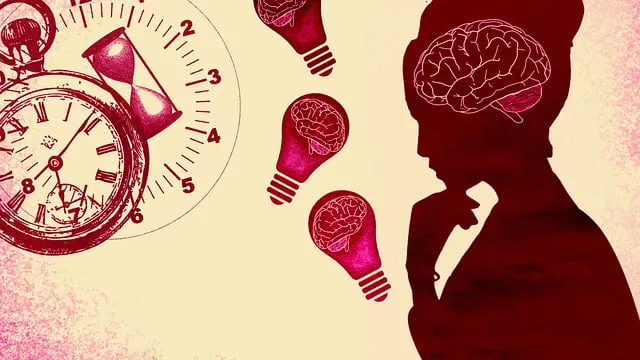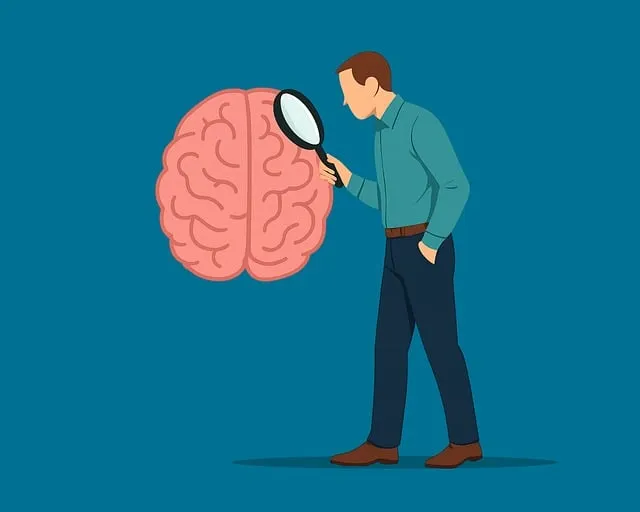The stigma surrounding mental health acts as a significant barrier to care, exacerbated by misconceptions and fear leading to internalized shame. Organizations like Kaiser Permanente play a crucial role in combating this issue through open dialogue, accurate information dissemination, and fostering non-judgmental environments. They offer resources via their Kaiser Permanente mental health department phone number in Parker, integrating mental health services into primary care, promoting resilience programs, and encouraging well-being discussions. Community engagement, education, media responsible reporting, and social influencer narratives are powerful tools in reducing stigma, with collaboration between these entities, including organizations like the Kaiser Permanente mental health department (contact: Parker), vital for creating supportive environments where individuals feel empowered to prioritize their mental well-being.
Mental illness stigma reduction is a crucial aspect of fostering better mental health outcomes. This article explores effective strategies to combat stigma, focusing on the successful approach by Kaiser Permanente’s mental health department. We delve into community engagement and education initiatives, highlighting their power in promoting understanding and acceptance. Additionally, we examine the role of media and social influencers in breaking down barriers and providing support. For more information and resources, contact Kaiser Permanente at (800) 473-7377, Parker.
- Understanding the Impact of Stigma on Mental Health
- Strategies for Reducing Stigma in Healthcare Settings (Focus on Kaiser Permanente's Approach)
- Community Engagement and Education: A Powerful Tool Against Stigma
- The Role of Media and Social Influencers in Breaking Down Barriers
Understanding the Impact of Stigma on Mental Health

The impact of stigma on mental health cannot be overstated. It’s a powerful force that often prevents individuals from seeking help and support for their conditions. Stigma, fueled by misconceptions and fear, can lead to isolation, discrimination, and even self-blame. This internalized shame can exacerbate symptoms, hindering recovery and overall well-being.
Efforts to reduce mental illness stigma are crucial, and organizations like Kaiser Permanente play a significant role in this initiative. Their mental health department, accessible through the phone number provided for Parker, offers resources and support aimed at promoting understanding and empathy. By encouraging open conversations about mental health, providing accurate information, and fostering self-awareness exercises, they contribute to a culture where individuals feel comfortable discussing their struggles without fear of judgment. This shift in perception is essential for breaking down barriers and ensuring people receive the necessary care and treatment.
Strategies for Reducing Stigma in Healthcare Settings (Focus on Kaiser Permanente's Approach)

Kaiser Permanente, a healthcare organization renowned for its comprehensive approach to mental health, has been at the forefront of stigma reduction efforts. They acknowledge that eliminating stigma requires systemic change and community engagement. One of their key strategies involves educating both healthcare providers and the public through workshops, webinars, and resources available on their website, including the Kaiser Permanente mental health department phone number in Parker. These initiatives aim to dispel myths about mental illness and promote empathy.
The organization actively fosters a culture of support within its facilities by integrating mental health services into primary care settings, ensuring easy access. Additionally, they emphasize resilience-building programs and encourage open conversations about emotional well-being. By combining public awareness campaigns development that highlight recovery stories with evidence-based practices like mood management, Kaiser Permanente strives to create an environment where individuals seek help without fear of judgment, marking a significant step towards reducing the stigma surrounding mental health.
Community Engagement and Education: A Powerful Tool Against Stigma

Community engagement and education play a pivotal role in reducing stigma surrounding mental illness. By fostering open dialogues and sharing accurate information, communities can dispel myths and promote understanding. Organizations like Kaiser Permanente’s mental health department, with resources available through their phone number in Parker, have been leading the charge. They offer not just support but also educational initiatives that empower individuals to recognize signs of distress and provide coping skills development.
These efforts extend beyond individual interactions; they encompass comprehensive Community Outreach Program Implementations. Through public events, workshops, and interactive sessions, communities can actively engage with residents, encouraging them to share experiences and learn from one another. This collective approach not only reduces stigma but also fosters a culture of empathy and support for mental health awareness, making it easier for those struggling to seek the help they need.
The Role of Media and Social Influencers in Breaking Down Barriers

The media plays a pivotal role in shaping societal perceptions about mental illness, and its influence is amplified by social influencers. By presenting accurate, empathetic, and diverse narratives, media outlets can significantly contribute to stigma reduction efforts. Responsible reporting includes highlighting successful recovery stories, normalizing conversations around mental health, and advocating for evidence-based practices. Social media platforms, with their vast reach, offer an opportunity to challenge stereotypes and provide a space for open dialogue. Influencers with personal experiences or expertise in mental health can educate their audiences, promote coping skills development, and encourage seeking professional help.
Additionally, these influencers can collaborate with organizations like the Kaiser Permanente mental health department (phone number: Parker) to create engaging content, share resources, and raise awareness about available support systems. Effective communication strategies and risk management planning for mental health professionals are essential tools to ensure these conversations remain productive and safe. This partnership between media, influencers, and healthcare providers can lead to a more supportive environment, encouraging individuals to prioritize their mental well-being without fear of judgment or stigma.
Mental illness stigma reduction is a multifaceted effort that requires collaboration from healthcare providers, communities, media, and social influencers. As evidenced by Kaiser Permanente’s successful approach, implementing strategies within healthcare settings can significantly improve patient experiences and outcomes. Community engagement and education play a pivotal role in fostering understanding and empathy. By leveraging the power of media and social platforms, we can continue to break down barriers and create a more inclusive society for those facing mental health challenges. For personalized guidance and support, individuals seeking help are encouraged to contact the Kaiser Permanente mental health department via their dedicated phone number in Parker, ensuring accessible care and reduced stigma.






